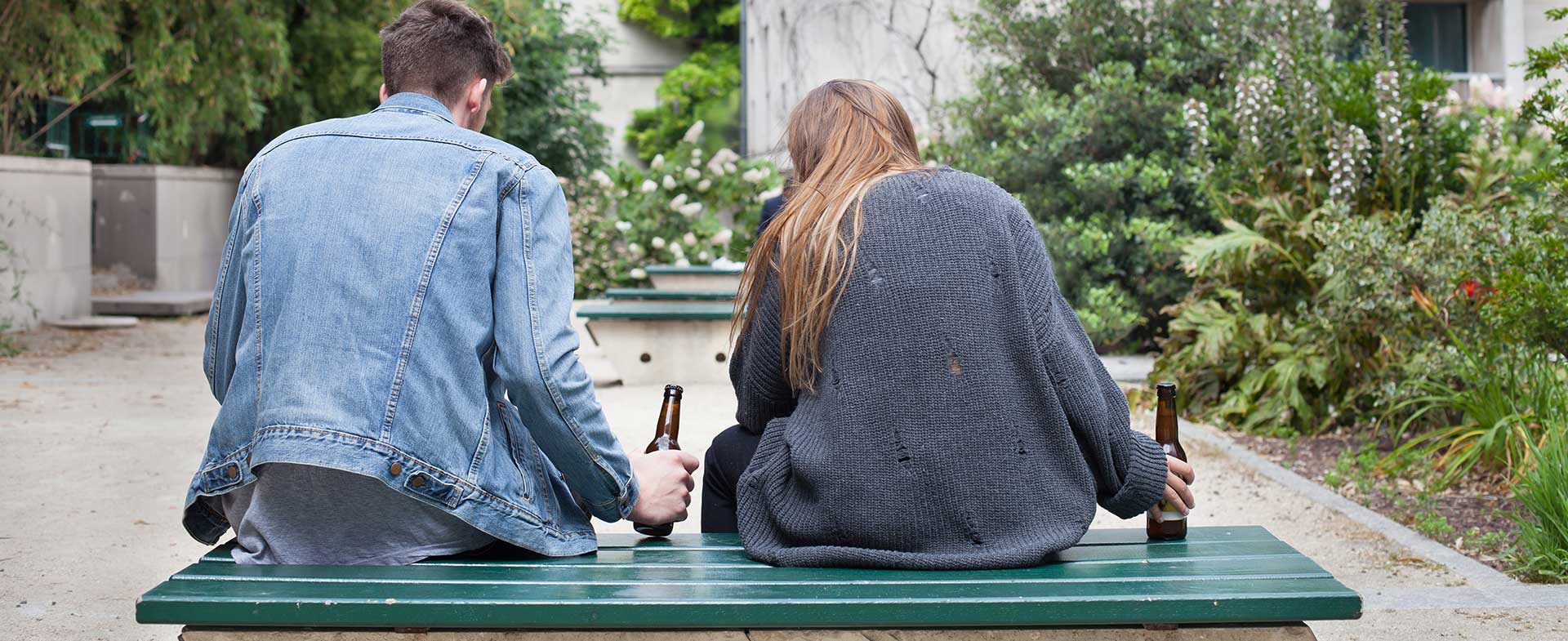Around the ages of 12 – 14, kids start to assert their independence and they want to do more activities without parental supervision. While this is natural, peer pressure can sometimes be overwhelming, especially as teenagers want to feel a sense of belonging among their classmates. For some teens, this is the time they might be exposed to drugs or alcohol, says Lani Devaney, D.O., a pediatrician at Henry Ford Health.
She notes that several factors can increase a teen’s risk of using drugs and alcohol, such as:
- Seeing substance abuse normalized at home
- Rejection of the family based upon sexual orientation or identification
- Lack of stability and support in the home, or an unsafe home environment
- Having untreated mental health issues, as drugs and alcohol are often used to mask problems. The CDC reports that mental health issues are at an all-time high among teenagers, especially among teen girls
Risks Of Drug And Alcohol Use In Teens
In teens, drug and alcohol use can lead to several negative outcomes, including:
- Impaired judgement. Alcohol and drugs—including marijuana—lower your inhibition, which may lead to risky sexual behavior that could potentially lead to STIs. Lowered inhibition can also lead to drunk driving and other dangerous stunts that can cause injury and death. “Teens often think they are invincible, but that is far from the truth,” says Dr. Devaney.
- Lung issues. Cigarettes and marijuana are addictive, carcinogenic substances. “Any foreign substance that goes into the lungs can potentially cause long-term lung problems,” says Dr. Devaney. Marijuana could also be unknowingly contaminated with fungus or other harmful substances.
- Substance abuse. Teens who abuse drugs are more likely to abuse them as an adult.
- Stunted brain development. Research shows that alcohol and drugs may affect brain growth and development in teenagers, especially as the brain is still developing until age 25.
- Increased anxiety. While it might seem like drugs and alcohol decrease anxiety in the short-term, they can actually increase anxiety in the long-term.
How To Protect Your Teen From Substance Abuse
You can’t be with your child every second of the day but you can instill in them the values and support they need to make smart decisions.
“Take an interest in your child’s life from a young age,” says Dr. Devaney. “Meet their friends and their friends’ parents, know what their households are like. You can’t foresee every situation—and any kid can get into any situation—but being involved can be protective.”
Here, Dr. Devaney shares additional ways to help them navigate difficult situations:

Need A Pediatrician?
- Talk openly and honestly about the dangers of drugs and alcohol. “Explain the risks involved,” she says. “Don’t just tell them they shouldn’t do it—tell them why they shouldn’t. Educate them without judgement.”
- Give your child a code word to use if they’re in an uncomfortable situation. “It could be any word that lets you know your child wants to be picked up,” says Dr. Devaney. “If they’re at a friend’s house, make sure you have their parent’s number, too.”
- Monitor what they see on social media. “Drugs, alcohol and smoking are glamourized on TV and social media,” says Dr. Devaney. “Supervise what your child is exposed to. Some social media apps even have parental controls.”
- Give your child an anchor person to connect with. “Whether it’s a coach, counselor or teacher, having someone outside of the home who sees your child in a positive light can make a difference,” says Dr. Devaney. “It can be as simple as ‘you did a great job on that test today,’ or ‘I can’t wait to see you at practice.’ Encouraging words can benefit their mental health and empower them to make good choices.”
- Let your child know they can confide in you. “Set your anger aside so they feel comfortable telling you when they have a problem or when they don’t make the best choices,” says Dr. Devaney.
Signs Your Teen May Be Using Drugs Or Alcohol– And What To Do
Smelling alcohol, tobacco or marijuana is an obvious sign they’re using. Additional signs include:
- A change in behavior, extreme mood swings, or becoming more isolated or secretive
- Changes in their friend group
- Falling behind in school, if they were historically a good student. “This doesn’t necessarily mean drugs or alcohol are involved, but it usually means something is going on with your child that’s significant enough to impact them,” says Dr. Devaney.
If you suspect your child is using alcohol or drugs, sit them down and let them know you’re worried. “Walk into the conversation with concern and love,” says Dr. Devaney. “If you’re met with a brick wall, have someone they trust—a beloved aunt or uncle, for example—talk to them instead.”
You can also make an appointment with their pediatrician, who can help discern whether they have a substance abuse issue, a mental health issue or both. “Oftentimes, substance abuse is used to suppress other issues,” says Dr. Devaney. “At Henry Ford, we work with counselors to get patients any mental health assistance they might need.”
Reviewed by Lani Devaney, D.O., a pediatrician who sees patients at Henry Ford Medical Center – Sterling Heights.



